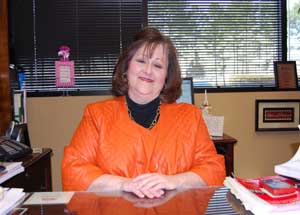Editorial
Front Page - Friday, June 26, 2009
Course to teach Realtors the ins and outs of short sales
Samara Litvack

Much has changed in the real estate industry over the last couple years. Now more than ever, homeowners and Realtors are doing whatever the can to keep homes from going into foreclosure. One way this can happen, which is becoming more and more popular, is the
short sale.
“A short sale is when more money is owed on the property than the property will sell for in today’s market,” says Robben Matthews, of Keller Williams’ East Brainerd office. “In other words, you have a loan of $100,000 and the home is only worth $80,000 right now. Let’s say you bought in 2005 and you’re going to sell in 2008. It may have been worth $100,000 but it’s only worth $80,000 now. Where’s that money going to come from? There’s 20 grand just sitting on the table there.”
At this point the bank has two options: it can decide to short sale the property for $20,000 less or it can take the home into foreclosure. The problem with the latter is that it could cost the bank a lot of money. The home could be in poor condition (tenants experiencing foreclosure often destroy and take things from within the home); it will need to be cleaned; the bank will have to carry it and lose money via missing mortgage payments; the bank must also foot the bill for taxes, homeowners dues, appraisal, winterization and any other costs that may arise.
“The average spent on a foreclosed property is somewhere around $50,000,” says Matthews.
On the flip side, the bank can simply agree to a short sale and accept $20,000 below value of the home, saving a substantial chunk of money.
Matthews sees the short sale as a lifeline to homeowners facing foreclosure, and has been teaching courses with the Chattanooga Association of Realtors that show agents how to conduct the process. She specifically teaches agents how to advise their clients with short sales and how to avoid possible stipulations banks may try to put in place.
For example, a bank may take the $20,000 off the sales price, but require the homeowner to pay it back over a certain amount of time.
“I teach agents how to work that out so that doesn’t happen to the homeowner,” says Matthews. “I teach them how to write the letter saying, ‘Just write it off. Count your losses and go on.’”
Also, a bank can issue a 1099-C tax document claiming that the homeowner made $20,000 in equity at the point of the short sale.
“I have to teach the agents how to help the consumer,” says Matthews. “If you get that 1099, you go back down and you go to the IRS and you get this little other form and you fill that out. It says you’re
insolvent and you can’t pay it.”
Matthews’ course, titled “Servicing the Short Sale,” will be held on Wednesday, July 22, from 1 to 4 p.m. at the CAR office.
“I’m trying to train our agents to be consultants and helpers to the public,” says Matthews. “The difference in a short sale and a foreclosure on your credit report is huge. A short sale is going to ding it. It’s going to ding it anywhere from 40 to 60 points… But a foreclosure might ding it anywhere from 120 to 200 points.”
Matthews says it is important for agents to let homeowners know that they are not alone. Just like an attorney would help them through a bankruptcy, a Realtor can help them through mortgage trouble.
“That’s what I am teaching (agents),” she says. “I’m teaching them how to work with banks, what documentation the homeowner needs to get. I’m teaching them how to put that package together to send to the bank, what they need to prove for that homeowner so that homeowner can get a short sale approved.”
It is a Realtor’s responsibility to help the homeowner get all his or her documentation ready for the bank. The Realtor must know how long the process will take and be willing to walk with him or her every step of the way.
“A Realtor will work harder, in my opinion, on a short sale than any sale they will ever do because here’s what happens,” says Matthews. “The public, number one, doesn’t know about it. They get the foreclosure notice in the mail … and they stick their head in the sand. They are so embarrassed. They’re humiliated. They thought it would never happen to them.
“I have to train the agents to look and ask the tough questions, like ‘are you current on your mortgage’ and ‘how many payments are you behind’ because I guarantee, you would think that the homeowner would call the bank and work with them. They are so humiliated, so scared, so beaten down already. If the mortgage person’s sending them a letter, you can bet they’ve got 20 other creditors calling them.”
If a Realtor can come along and help the homeowner avoid foreclosure, Matthews says that Realtor can lay down at night knowing he or she made a true difference in someone’s life.
“That’s a gift,” she says.
Classes have been full nearly every time Matthews has taught this course at the association, so call 423-698-8001 to register for the course.
“(Realtors) can leave there with the full knowledge and confidence in being able to help someone through this process,” she says. “I also tell them in the class, if you want (the letters to send the bank) in digital format so you don’t even have to type it, just e-mail me and I will e-mail you the appendix back in digital format so you can just go in there and change the name.”
|
|